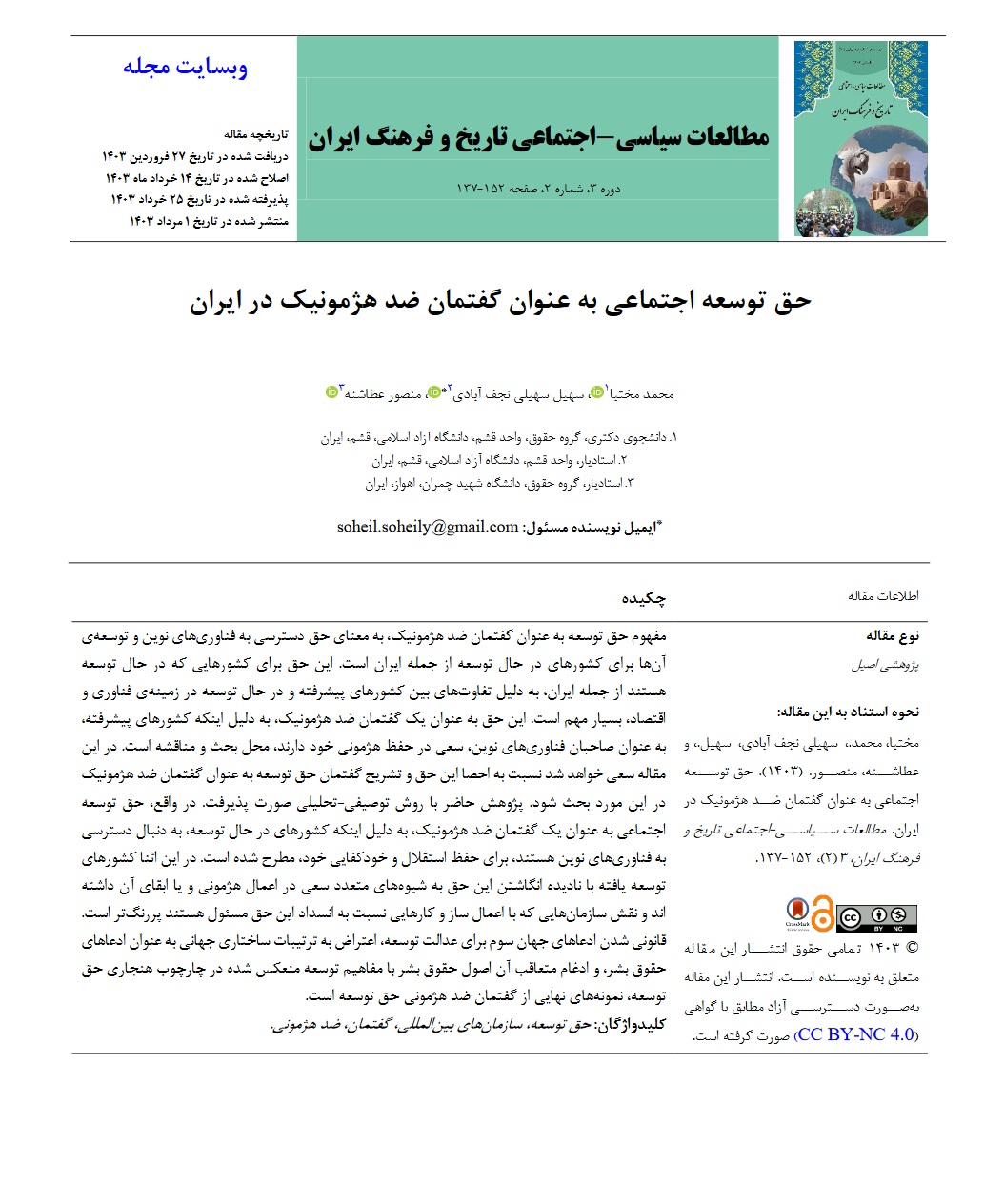The Right to Social Development as an Anti-Hegemonic Discourse in Iran
Keywords:
the right to development, international organizations, discourse, anti-hegemonyAbstract
The concept of the right to development as an anti-hegemonic discourse refers to the right of access to and the development of new technologies for developing countries, including Iran. This right is crucial for developing countries like Iran due to the disparities in technology and economy between developed and developing nations. This right, as an anti-hegemonic discourse, is a subject of debate and contention because developed countries, as the owners of new technologies, seek to maintain their hegemony. This article aims to identify this right and discuss the discourse of the right to development as an anti-hegemonic discourse. The present study was conducted using a descriptive-analytical method. In fact, the right to social development as an anti-hegemonic discourse has been proposed by developing countries in their pursuit of access to new technologies to maintain their independence and self-sufficiency. Meanwhile, developed countries, by ignoring this right in various ways, have sought to exert or maintain their hegemony, and the role of organizations that are responsible for blocking this right through various mechanisms has become more prominent. The legalization of third-world claims for developmental justice, the protest against global structural arrangements as human rights claims, and the subsequent integration of human rights principles with development concepts reflected in the normative framework of the right to development are the final examples of the anti-hegemonic discourse of the right to development.
Downloads







